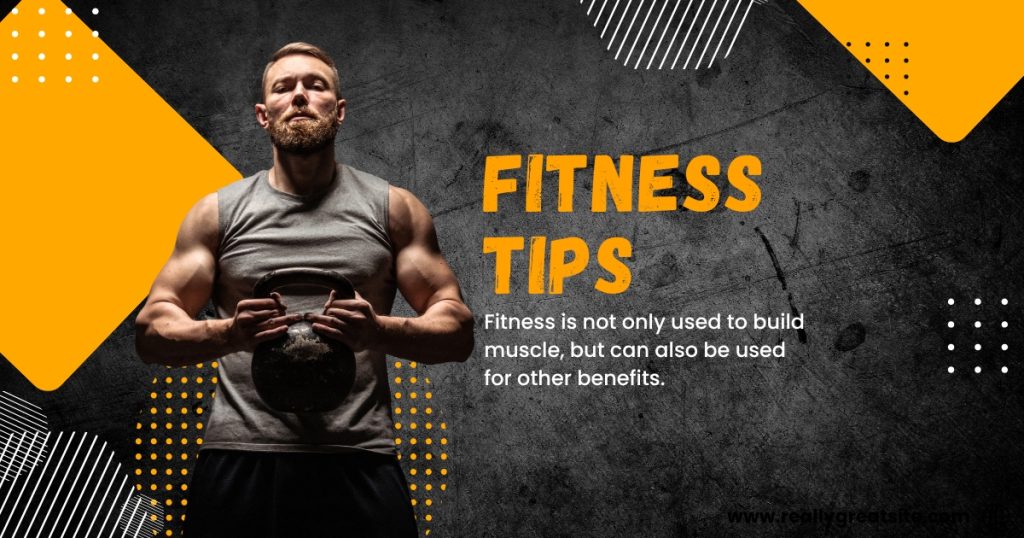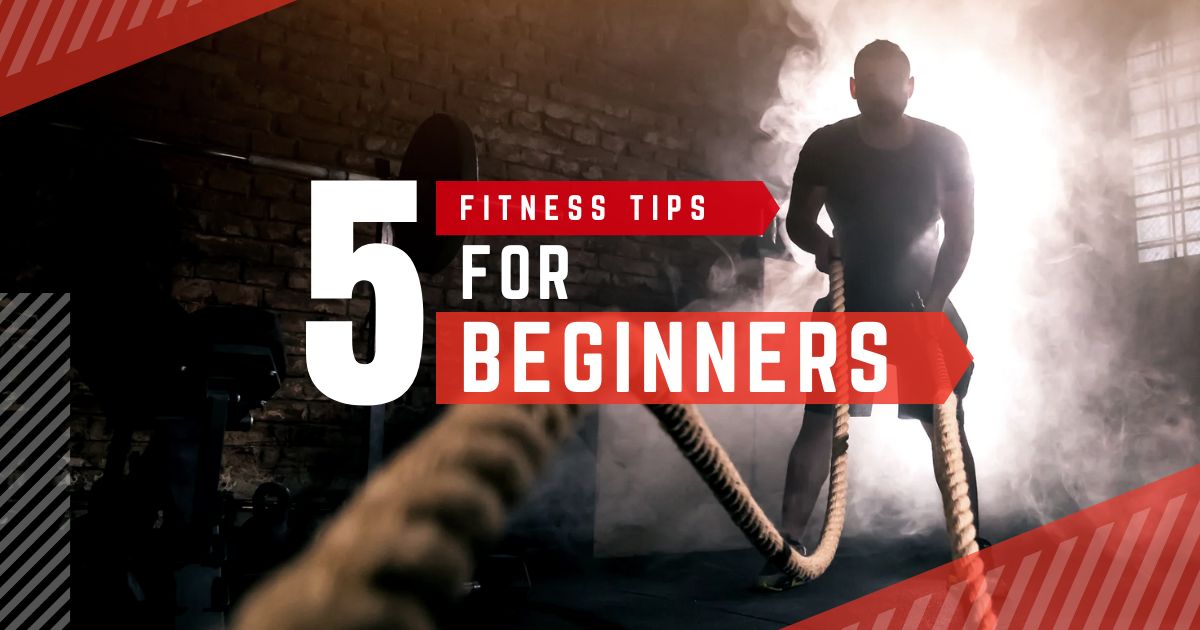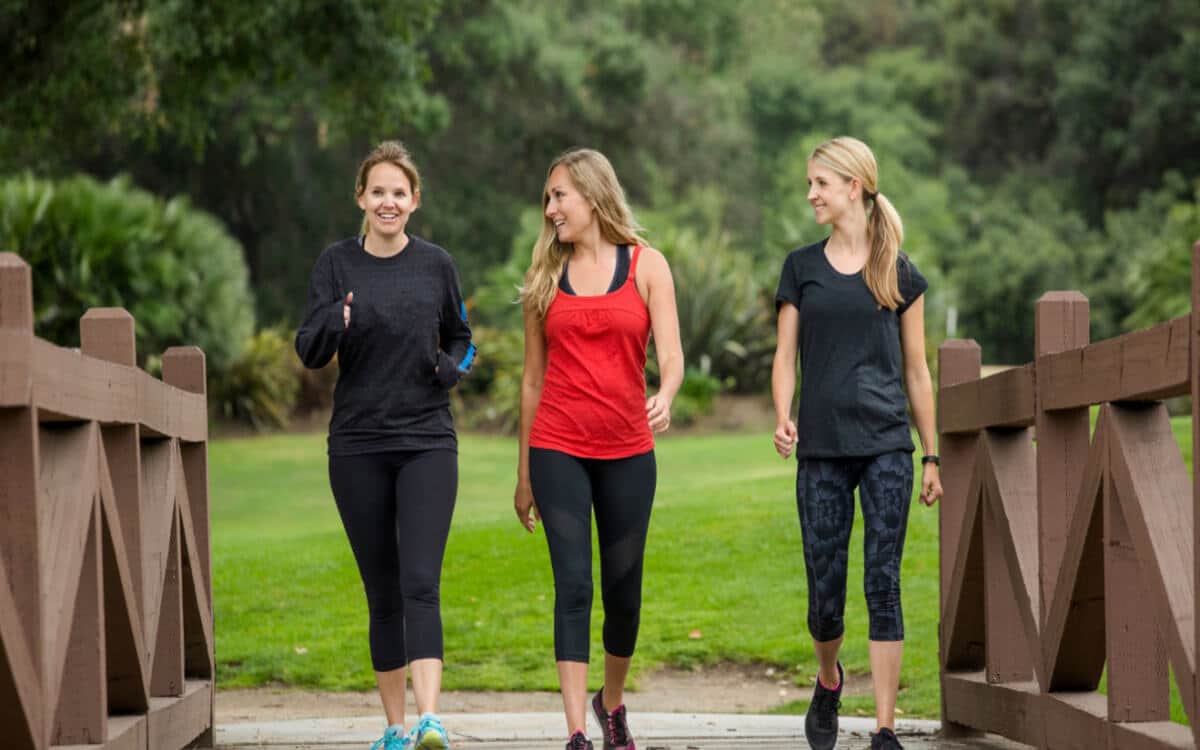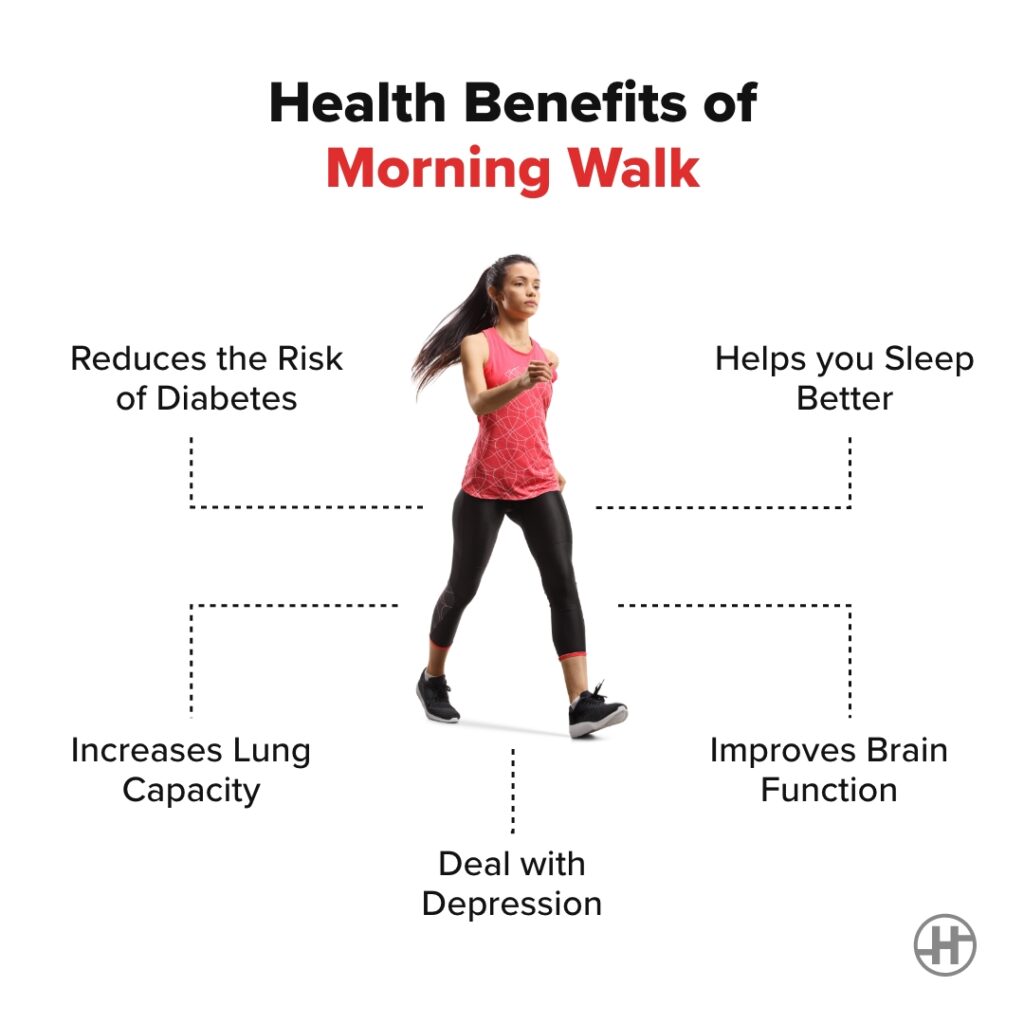Starting your fitness journey can feel overwhelming. With so much advice online, it’s hard to know where to begin. But don’t worry—if you’re just getting started, you’re already on the right path. These best fitness tips for beginners will help you build a solid foundation, stay motivated, and see real results.

Top 5 Fitness Tips Every Beginner Should Follow
Starting a fitness journey can be exciting, but also a bit confusing. With so much information out there, it’s easy to feel overwhelmed. If you’re new to working out, don’t worry—these best fitness tips for beginners are designed to guide you through the basics. From setting goals to building healthy habits, these simple tips will help you stay consistent, motivated, and injury-free.
1. Set Realistic Goals
One of the biggest mistakes beginners make is setting goals that are too ambitious. Start with small, achievable targets. Whether it’s losing 5 pounds, walking 10,000 steps a day, or exercising three times a week, realistic goals keep you motivated and prevent burnout.
Write your goals down, track your progress, and celebrate small wins. Remember, fitness is a journey, not a race.
2. Focus on Form, Not Speed
Proper form is essential for preventing injury and getting the most out of your workouts. Whether you’re lifting weights, doing yoga, or running, always focus on technique.
If you’re not sure how to do a particular exercise, watch tutorials or ask a trainer. It’s better to do 10 push-ups with good form than 30 with poor posture.
3. Start with Low-Impact Workouts
For beginners, low-impact workouts like walking, swimming, cycling, or bodyweight exercises are ideal. These help you build strength, endurance, and confidence without putting too much stress on your joints.
Try starting with 20–30 minutes of moderate activity, 3–4 times a week. Gradually increase the duration and intensity as your fitness level improves.
4. Warm Up and Cool Down
Many beginners skip warm-ups and cool-downs, but these are crucial parts of a safe workout. A 5-minute warm-up gets your blood flowing and prepares your muscles. A proper cool-down with stretching helps reduce soreness and improves flexibility.
Examples of warm-up activities:
- Light jogging
- Arm circles
- Dynamic stretches
For cool-downs, focus on:
- Gentle walking
- Deep breathing
- Static stretching
5. Stay Consistent, Not Perfect
Consistency is more important than perfection. It’s okay to miss a workout or have an off day. What matters is getting back on track. Create a weekly workout plan and stick to it as best you can.
A simple schedule might look like this:
- Monday: Full-body workout
- Wednesday: Cardio session
- Friday: Core and flexibility training
- Weekend: Light activity like walking or stretching
6. Eat for Energy
Fitness isn’t just about exercise—nutrition plays a huge role. Fuel your body with whole foods like lean proteins, complex carbs, fruits, and vegetables. Stay hydrated, and avoid skipping meals.
Here are a few beginner-friendly nutrition tips:
- Eat a balanced breakfast
- Drink at least 8 glasses of water daily
- Avoid processed foods and sugary drinks
- Don’t fear carbs—choose whole grains and veggies
7. Get Enough Rest and Recovery
Rest is when your body repairs and grows stronger. Make sure you’re getting 7–9 hours of sleep per night. Also, give your muscles time to recover between intense workouts.
Overtraining can lead to fatigue, injuries, and burnout. Listen to your body and don’t be afraid to take rest days.
8. Track Your Progress
Keeping a fitness journal or using a fitness app can help you stay accountable. Log your workouts, meals, sleep, and how you feel. Over time, you’ll be able to see what works best fitness tips for beginnersfor your body.
Free fitness apps like MyFitnessPal, Fitbit, or Google Fit are great for beginners.
9. Stay Positive and Patient
Fitness is a long-term commitment. Results don’t happen overnight, and that’s okay. Stay positive, be patient with yourself, and trust the process. Everyone starts somewhere.
Remember, your goal is progress—not perfection.
10. Consider Professional Guidance
If you’re unsure where to start, working with a personal trainer or joining a beginner-friendly class can help. They’ll teach you proper form, create a plan tailored to your goals, and keep you motivated.
Why Following the Best Fitness Tips for Beginners Matters
When you’re just starting your fitness journey, it’s easy to make common mistakes—doing too much too soon, using incorrect form, or following trendy but ineffective routines. That’s why sticking to the best fitness tips for beginners is so important. These tips provide a foundation that helps you build strength, stay safe, and form long-lasting habits.
Following expert-recommended advice also keeps you motivated. Seeing progress—whether it’s more energy, better sleep, or a few inches lost—reinforces your commitment. Plus, starting with the right mindset and realistic goals can prevent injury, frustration, and burnout. Instead of quitting early, you’ll stay on track and enjoy the process.
The best part? These tips aren’t complicated. They’re practical, easy to follow, and proven to work. No matter your age, background, or current fitness level, applying the basics consistently leads to long-term success.
Final Thoughts
These best fitness tips for beginners are designed to help you start strong and stay consistent. Focus on your goals, take it one step at a time, and don’t forget to enjoy the journey. Fitness isn’t just about how you look—it’s about how you feel, move, and live.


